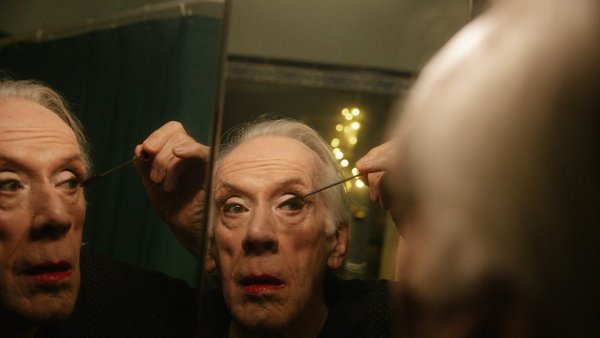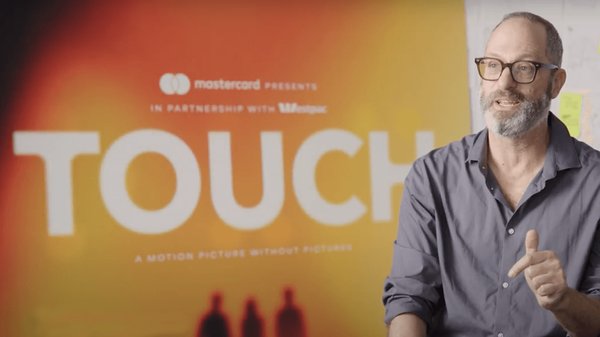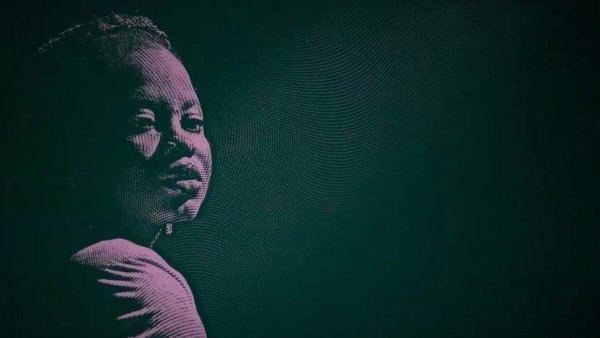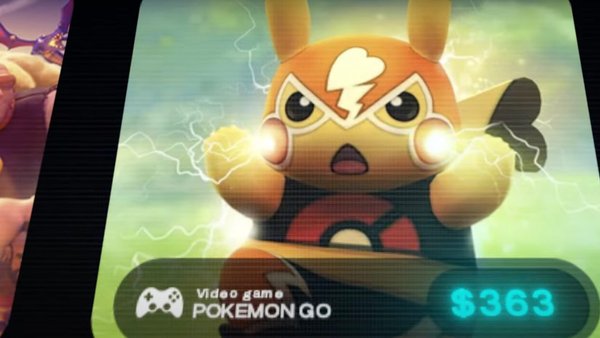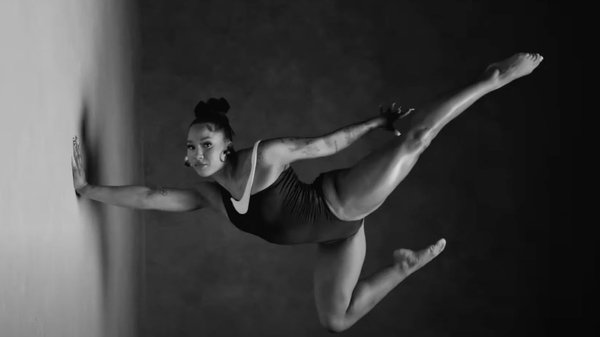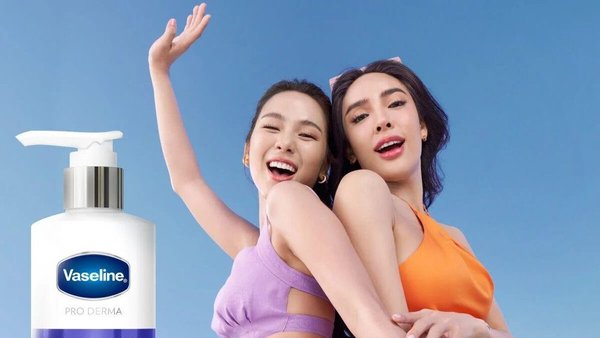Last year we covered Mastercard’s True Name initiative, which allows for chosen names to appear on the front of bank cards. For many trans people the name on their cards does not reflect their true identity, which can be a source of humiliation, discrimination or even danger, with some 32% of people who have shown IDs with a name or gender that did not match their presentation reporting being harassed, denied services and/or attacked.
The campaign, developed with agency McCann New York, was rolled out during Pride in 2019, with a video featuring real people describing their negative experiences of debit or credit cards that misrepresent their true identities. The product was then officially launched in December that year, with US bank BMO Harris and LGBT-oriented financial institution Superbia Credit Union the first issuers to implement it.
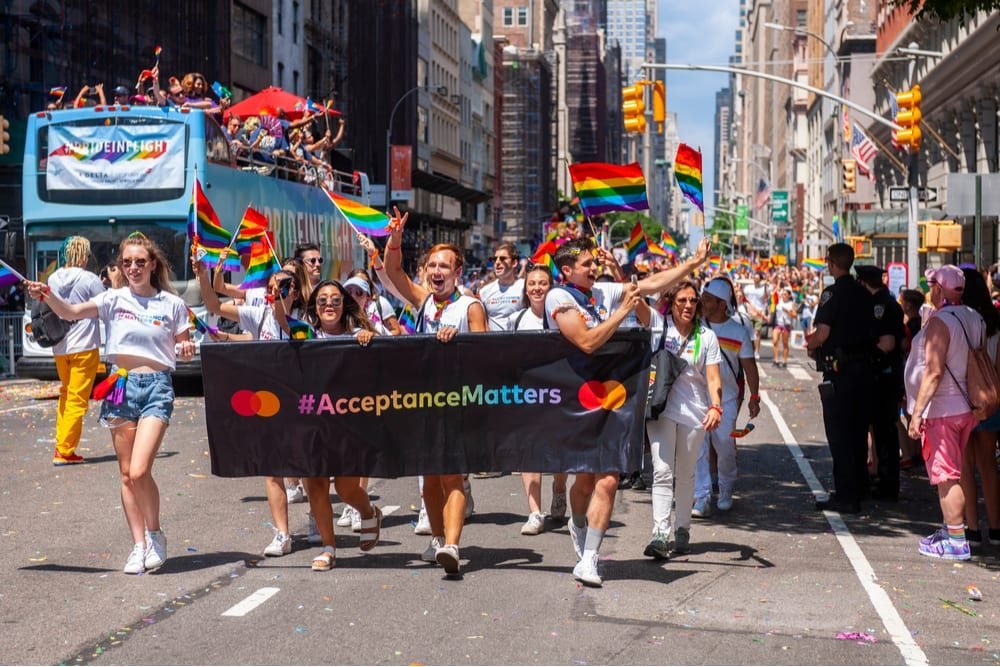
In June 2020, a new spot, directed by Bryan Buckley of production company Hungry Man, ran during US TV network ABC’s Pride coverage, in which trans and non-binary actors explained what True Name will mean for users.
Results / Within the first three weeks of the campaign, True Name achieved over 3 billion impressions with a 19:1 earned to paid media ratio. Mastercard has also since secured partnerships with banks around the world including Citibank, Bunq and Monzo, and competitors such as Visa and JP Morgan Chase have changed their own practices by bringing similar products to market. The initiative was also awarded a Grand Prix in the Brand Experience and Activation category at Cannes in 2021.
To find out how the idea for True Name originated and how the concept has evolved over the past few years, we spoke to Pierre Lipton, EVP global executive creative director, Oriol Bombi, EVP global strategy director, and Lucas Crigler, associate creative director, from McCann New York.
They said:
True Name enables Mastercard to meaningfully execute on its commitment to financial inclusion and ‘do well by doing good’
The insight for True Name came from a McCann creative’s real-life experience as a trans man
The agency ensured that trans and LGBTQIA+ people were included and consulted throughout the creative process
Although True Name has been praised for its bravery, the hope is that one day initiatives like this are the norm, rather than ‘brave’
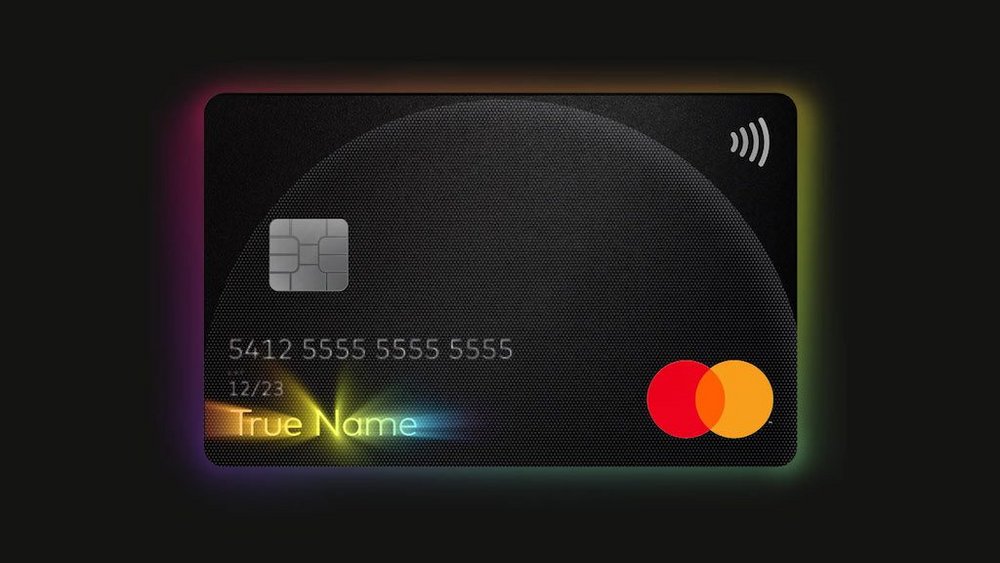
What is Mastercard's global business challenge?
Pierre Lipton: The main challenge, when we started as partners for Mastercard, was acceptance: making sure that people knew they could use their Mastercard for things that they would normally buy with cash. And in certain markets, that’s still something that we want to make sure people understand.
Oriol Bombi: Still 85% of consumer transactions around the world are cash. But it has changed in the last year, these are pre-pandemic data points.
Lipton: There are other challenges. Mastercard has moved ‘beyond the card’ – the card itself is disappearing in a lot of transactions. One of our goals is to be ‘top of wallet’. That means if you have five credit cards, you’re going to reach for the Mastercard first. That becomes increasingly hard when there’s not a physical card to reach for – do you remember what you’ve automatically saved in your browser?
People have a misunderstanding of what Mastercard does. Consumers might confuse them with a bank, but Mastercard is the pipeline of data that connects the bank and the merchant and the consumer. As such, it’s a technology company where that system can be applied to other areas. So they have a huge growth opportunity when it comes to B2B solutions and technologies, whether that’s B2B payments and automations, or authentication services, because a challenge for a lot of businesses is fraud. So having real authentication processes in place that can identify if the consumer is truly who they say they are, is a huge area for them, as is healthcare and moving data through the healthcare system securely.
Lucas Crigler, McCann New York
How did the idea for True Name originate?
Lucas Crigler: I am a transgender male and it all originated from a personal experience that I had at a restaurant where I went in to use my bank card and I hadn’t legally changed my name yet. I wasn’t fully presenting as a male, so when they went to read the name of the card over the loudspeaker to come pick up my sandwich, it ended up that I was outed publicly to everyone, because there was a feminine name on the card.
This is just one of the ways that we can be outed as trans people in public. And when that happened to me, in the middle of Manhattan, and I went through all of the anxieties and the shame that was associated with that, I realised that, if this is happening to me in Manhattan, it’s got to be even worse for other trans people in less accepting spaces.
So I took the idea to Pierre and Mastercard, and I wasn’t even sure it was possible at the time to put your chosen name on the front of a card. But they came back to me and they said, ‘We love this idea, and we’re gonna make it happen, no matter what it takes.’ Having that team hear me and see me, it’s just been really gratifying and it fills me with so much pride.
It feels cynical to now ask if it was tied to any specific business objectives…
Crigler: It always is!
Bombi: Well it is also tied to business objectives. One thing we say at Mastercard is ‘doing well, by doing good’ – and this whole idea of financial inclusion is our way to execute on that. What it means is very simple: the more people are in the system, the better for them in the digital economy. Cash is the tool of exploitation, cash is the tool of money laundering, cash is associated with a lot of things that are not so great.
So we push for a world in which more people are in the system, because it’s good for them and for the world. It’s also good for us – financial inclusion is a business strategy in the end. We love it, because it has both sides. It’s good for the world, but the more people are in the system, and the more people use electronic payments, it’s good for Mastercard.
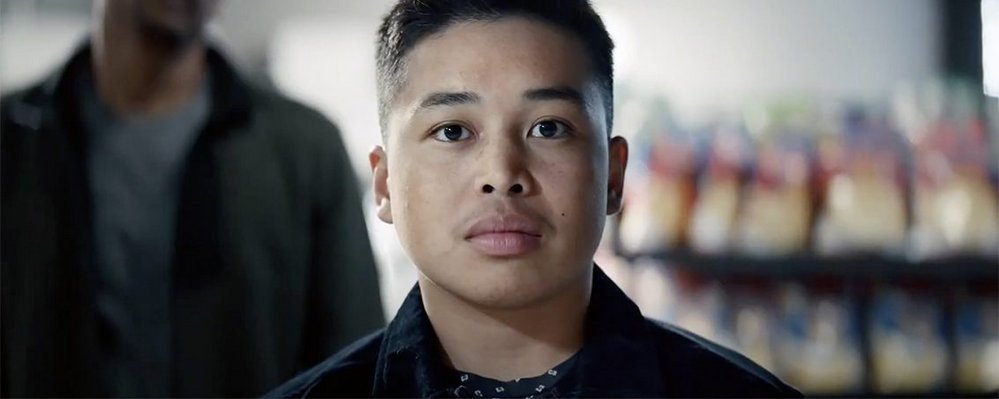
What was the timeline for this initiative?
Crigler: I think it was actually 2017 when I had the experience. I took it to the team and then, as with any large corporation, there were just a lot of people that had to be on board with the idea. The process of changing the entire landscape of how Mastercard handles and understands trans people was a huge undertaking. So it took a while to train everybody and get the idea to actually come to fruition in the real world.
Lipton: We decided to make a full blown video case study, as if the product had completely launched. Lucas and a crew went down to Pride in 2018 and interviewed people in the community, and asked them about their pain points with credit cards and what this would mean to them. The interviews were extremely emotional and receptive. We cut them into the case study as if the product had launched and brought it to [EVP North America marketing and communications at Mastercard] Cheryl Guerin, at the end of another meeting. She saw it and said, ‘Oh my God, we have to do this,’ right off the bat.
What were some of the pain points that you discovered trans people face with credit cards?
Crigler: I'm passing, which means that I can fly below the radar as a trans man, because I pass as a male in public. But at the time [of the outing at the restaurant] I wasn’t passing, so it stung. When I was outed by my card, it was very evident that I was trans. Now, as a passing man and a white male on top of it, I really want to make sure that I’m able to speak for as many people as I can who are trans. I don’t want to be the only voice per se. What I realised is that people who may be in my position who don’t have access to hormones, non-binary people, those who are outed by their card have a lot of these pain points. We found out that a lot of them are denied service, they’re discriminated against, harassed, and even sometimes face physical violence. So it’s a really dangerous situation to be in.
Lucas Crigler, McCann New York
I used to carry cash a lot of the time, I used to hand off the bill to my friend and then Venmo them, just to avoid using the card with my given name on it. And there’s the whole difficulty of changing your name legally. It’s doable in New York, but even in New York, it’s extremely difficult. We have to go through a therapist to be diagnosed with a disorder, we have to print our name in two publications, outing ourselves saying that we’re changing our name. And then of course, there’s the financial burden, which is difficult for trans people who have a lot of the time been disowned by their families and are left to survive on their own in the world. And that’s just in New York. So across the country, across the globe even, there has been legislation that has made it even more difficult.
Mastercard is stepping up to the plate, not only to enable people to change the name on the front of your card to your chosen name, but also to market it to transgender people. The biggest success for us is that Mastercard is actually saying, ‘This is a card for you’. They’re saying, ‘We support you,’ by marketing to us directly. This has been the largest corporation to stand up and stand behind us in this public way. That’s where a lot of the emotion came from, especially at Pride, when we said, ‘Hey, this is what Mastercard is thinking about doing, how do you feel about this being transgender?’ People just teared up. The support for the idea was incredible.
Pierre Lipton, McCann New York
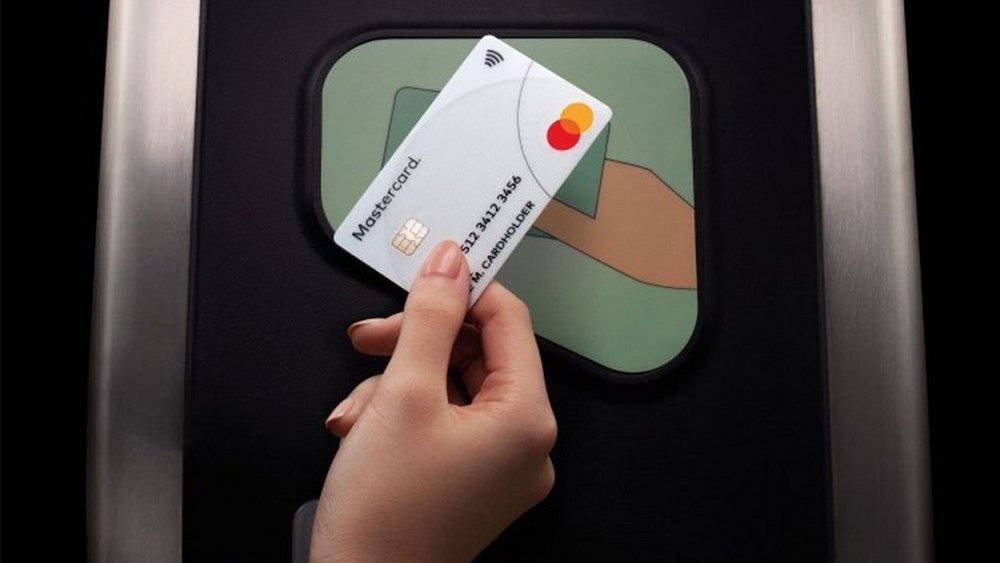
How have you rolled this out over the past three years?
Lipton: It was a tenacious effort by Cheryl Guerin, the client, and ourselves. I would dust off that video prototype in any meeting where I had an excuse, and show it to as many people as possible. Because the thing about hearing people’s experiences is you have empathy, you can understand their experience and their position in a way that you can’t if we'd just described the idea. Cheryl went all over the company and all over the category to find a bank to launch the product by 2019. At that point, no bank was ready to launch the product. There was interest, and there was support of the idea in a general sense, but it takes a lot for a bank to actually implement this.
It might seem like a simple implementation, but they have to change their policy and examine all the legal stuff that goes with that, and you know once lawyers get involved, things can take a while. But beyond that, they also have to make sure that the customer is addressed by their proper name, their true name, at every point of contact. They have to change email systems, train everybody in customer service, whether they’re on the phone or in branch, and so on. Cheryl and her team very bravely decided in 2019, despite not having a bank to launch it, to launch it anyway as a challenge to the industry and to show the banks the support it was going to get, both in terms of PR and consumers speaking directly to their banks and asking for the product.
Pierre Lipton, McCann New York
How did you market this to the trans community?
Crigler: We made sure that all the intersectionality that’s encompassed by the trans community was taken on board. We made sure to gather all of their personal thoughts on the idea.
Lipton: There’s a process in terms of the actual media plan and then there’s also a process in terms of making sure every piece within the media plan is phrased in a way that is true to the audience, which is what Lucas is talking about. We have an internal group called McCann Q, which has different members of the LGBTQ plus community. We brought everything we were ever going to do in public to McCann Q and had very long discussions about every little piece. As you can imagine, it’s a diverse community, there are diverse point of views. There’s not an official line on this question or that question. So it takes a lot of discussion and self-examination in order to make sure that it feels both true and respectful.
The media plan itself kicked off in 2019, with a panel. Mastercard is a partner of the NYC Heritage of Pride foundation, which has sponsored the Pride Parade for 10 plus years. And we had done a bunch of things, including a piece of work called Restroom for All. At the time there was a controversy about who could use the men’s room or women’s room [following North Carolina's ‘HB2’ law ie, ‘the bathroom bill’]. Mastercard created a bathroom with sensor that unlocked the door when it detected a human heartbeat. Anyway, at that year’s Pride in 2019, they started with a panel about True Name and about what this truly meant, which included Zeke Stokes, chief programs officer of GLAAD and Carmelyn P Malalis, commissioner and chair of the NYC Commission on Human Rights.
That kickoff spurred, along with a big PR outreach, a large amount of earned media. And then we did influencer marketing and social films. And we eventually had a broadcast film with trans actors, and interviews with each of the trans actors about their experiences. They were diverse in terms of their backgrounds, their races, where they were in their journey. And so we used those, as well as deeper dive into the topic for social.
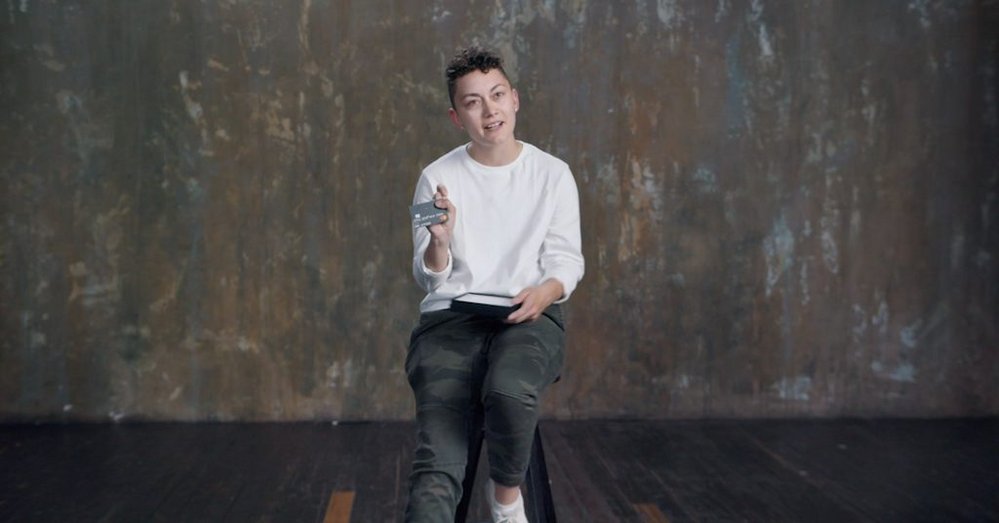
Which banks are now on board?
Lipton: The first bank was BMO Harris, which is a midsize bank in the US and Canada. We also got Superbia, a credit union that caters primarily to the LGBTQIA+ community. And then a couple years later, after much work, we launched with Citibank, globally. Since the Citibank announcement, we’ve launched with two banks in Europe: Bunq and Monzo. So we’re in 30 markets in Europe right now. And we just announced two weeks ago that we signed two major processors with footprints in Latin America and Asia, which allows the product to be more easily released in those markets by the banks that use those processors. We’re also working with a bank in the Middle East.
Pierre Lipton, McCann New York
And how have you navigated resistance towards True Name? Has the response always been positive?
Lipton: Of course it hasn’t, because of the world we live in. We would all be living different experiences if we could say that it got 100% positive reaction. We expected there to be people who didn’t approve. Mastercard went into that with their eyes wide open, but they know who they are as a brand, they know what they stand for, and they’re willing to stand for it because they believe it’s right.
Bombi: We tried to do it responsibly. Like Lucas was saying, we don’t try to speak for the whole community. In every market, the adaptation of the idea comes from a global insight but the feelings and the pain points in of the countries might differ. So we're not trying to just apply one central idea, we're trying to capture the nuances in each culture. It’s also about feelings – what does it feel like for people to have a True Name card in their hands? It’s been very inspiring for us – we made it back in 2018 and now people all over the world are telling us what it feels like for them.
Lucas Crigler, McCann New York
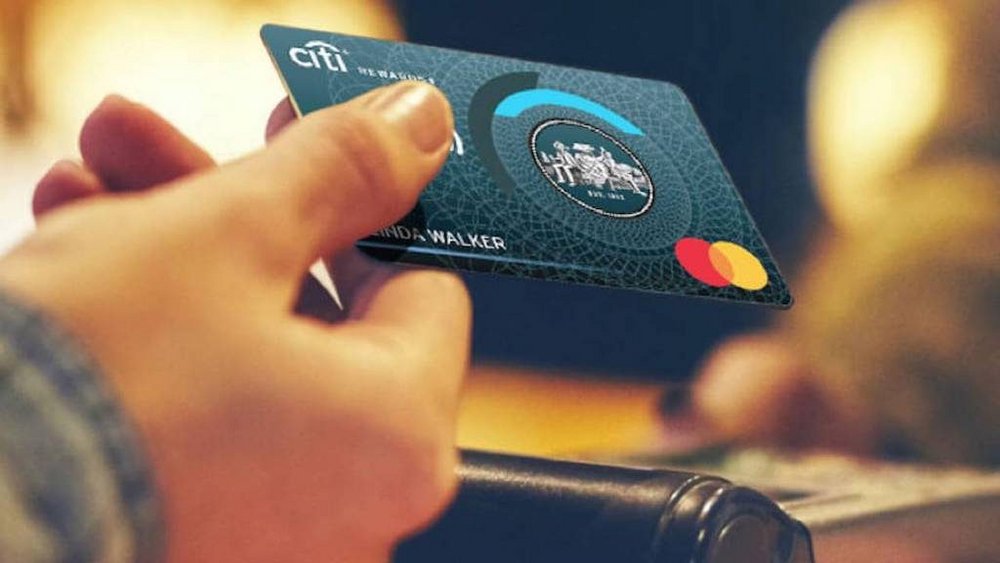
Lipton: When we launched with Bunq in Europe, there’s a wonderful film in which you see trans people talking about the difficulty that they face and receiving the card and reacting emotionally to it. They’re speaking French and German, and the reaction is very similar to that film that we had in 2018 with Americans. It’s such a universal feeling, but expressed locally. I sent it to Lucas as soon as I saw it. I was like, ‘Look at this, this is a universal human experience.’ It’s important that it’s not portrayed as an American experience. Wherever it is in the world, it has to be true to the people who are living it.
Crigler: We were shortlisted for a Cannes Titanium Lion. And that’s all about bravery. Coming out as trans and transitioning, everybody always would come up to me and be like, ‘You're so brave, Lucas.’ And [True Name] has also been described as brave. I think that the true success, in my eyes, is when being trans and creating ideas like this, are no longer a ‘brave’ thing to do.
At the end of the day, it's all about acceptance, and it shouldn’t be a brave thing. It should just be that we’re being ourselves and making ideas. I think that the reason it works right now is because it’s brave, but ideally in the future, these ideas for trans people are just like any other ideas – and that’s the success. I think this is especially relevant, because for Mastercard, the goal is not only that everyone is included, but everyone being included the way they are, as their true selves. It’s not only a matter of acceptance, it's acceptance with identity and dignity.
Pierre Lipton, McCann New York
You mentioned Mastercard has a history of supporting Pride and that the team worked closely with McCann Q – how else did you ensure that this initiative landed authentically and didn’t veer into rainbow-washing territory?
Lipton: I believe firmly, for any client, that the most effective and important way you can support a cause is through your core competency. It’s examining how what you do every day can affect the world at large if you make adjustments. This is an action. It’s not a statement. And I think that’s extremely important. This is one of the things we all talk about in advertising and communication, we saw it when people started becoming aware of millennials as a generation. We’d see decks saying, ‘Millennials care about purpose. They like brands with purpose.’ [And brands would say,] ‘Okay – let’s choose one.’ But really, it’s not about statements or aligning or signalling regarding a purpose. It's how you take action and affect change. And that's what Mastercard did here.
Pierre Lipton, McCann New York
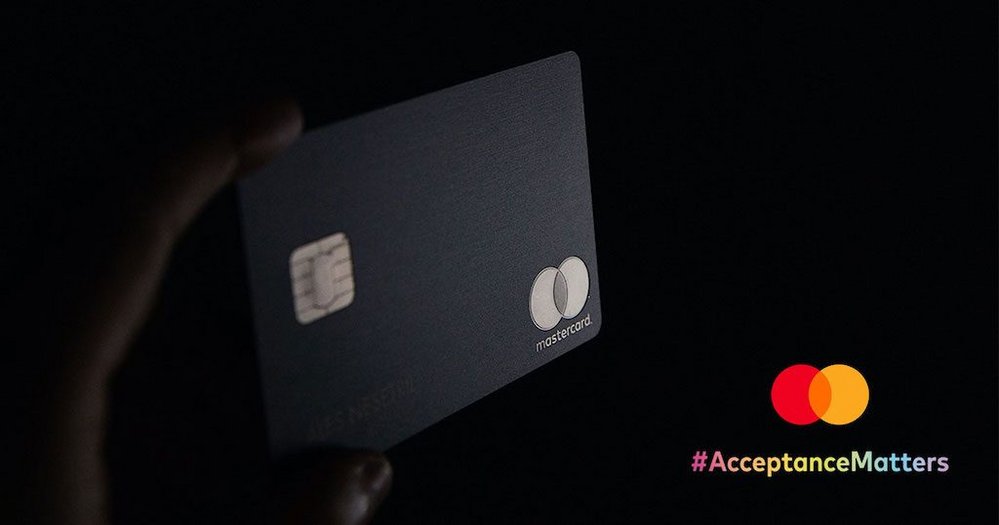
How does a financial services brand connect with people emotionally? And if a large chunk of the business is B2B, why is it important to have this emotional resonance with consumers?
Crigler: Humans are humans, right? That’s why the emotional element is important to include, to resonate on that human level. That’s what we hope to tap into, because that’s where true change comes from, when we can all relate on a human level.
Lipton: This is a huge part of the Mastercard/McCann story. 1997 was an age of overconsumption: greed is good, the flashy car. But Mastercard discovered what is really important to people aren’t these things, but the impact that these purchases can have. The Priceless positioning was a rogue positioning at the time, it was a real veer away from what everybody else was saying.
Mastercard has carried that through to the present day. If you think about payment systems, the category is moving so quickly, and many of the products are ubiquitous. So what's our differentiator? What do we as a brand focus on? For us, it's how money relates to impact, how we can affect that impact, and how you as consumer, use money as a tool to pursue the things that more important in life than the things that you buy and forget about.
Bombi: It’s a point of view that what you buy and what you buy it with is important, but ultimately, it’s something beyond that specific purchase that really matters in life. Something that has value beyond price – that’s the core of the meaning of Priceless.


